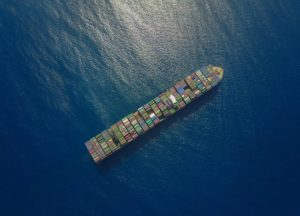
The Philippine Inter-island Shipping Association (PISA) is requesting the Maritime Industry Authority (Marina) to exempt domestic ships from implementation of the International Maritime Organization’s (IMO) regulation on use of cleaner marine fuel oil in 2020, citing major cost concerns.
PISA executive director Atty. Pedro Aguilar, in a position paper submitted to Marina officer-in-charge Narciso Vingson, Jr., said that as the country’s flag administration, the maritime authority “is not precluded from exempting ships exclusively for domestic operation from the coverage of IMO 2020.”
Aguilar said the group’s position is “anchored mainly on the cost impact of complying…”
IMO 2020 is a regulation under Annex VI of the International Convention for the Prevention of Pollution from Ships (MARPOL Convention) that requires all ships in non-emission control area zones to set a limit on the sulfur content of fuels from 3.50% to 0.50% by January 1, 2020. The policy aims to reduce the amount of sulfur oxides emanating from ships particularly for populations living close to ports and coasts.
The Philippines is a state party to all annexes of the MARPOL Convention.
Aguilar said that according to a presentation of the Department of Energy (DOE) during a stakeholders’ consultation last March 28, all options available to implement the IMO policy would entail additional costs for domestic shipowners, and these added expenses would ultimately be passed on to consumers.
Using marine fuel with 0.5% sulfur content might generate problems of availability, compatibility and safety as no standard has been developed yet to refine such fuel’s properties.
During the consultation Petron Corp and Pilipinas Shell Petroleum Corp, the only oil refiners in the country, said they currently do not produce fuel with 0.5% sulfur content. Aguilar said Shell noted that apart from some technical problems to be addressed in its refinery to enable it to produce low sulfur fuel oil (LSFO), it has to construct separate storage facilities for LSFO, the undertaking seen to take at least two years.
Phoenix Petroleum Philippines, Inc. would also need separate storage facilities, assuming it can import the fuel from abroad.
Aguilar noted that immediate supply of LSFO in 2020 by petroleum traders would depend on whether supply is available in the international market. He, however, said no oil company can give a ballpark figure on the additional cost per liter from using imported LSFO.
Concerns with ‘scrubbers’ raised
Another option for compliance is installation in vessels of exhaust gas cleaning systems called “scrubbers”; this will allow operators to continue using the kind of marine fuel they currently use.
Aguilar pointed out this option, however, would require a huge capital, estimated at US$4 million per scrubber including installation. There are also issues with waste water discharge of scrubbers, and compatibility issues with old ships, as such vessels are prevalent in the domestic shipping industry.
Another option is the use of alternative fuels such as liquefied natural gas and methanol, which are clean and comply with the sulfur content limit. But DOE noted these fuels are not readily available in major ports, and the infrastructure needed to supply them may be lacking.
Marine gasoil and diesel-blended marine fuel oil, which DOE sees as the preferred alternative fuels of international ships, is another option for domestic ships. Aguilar, however, noted that the increase in demand for such types of fuel could jack up the price of diesel as domestic ships would be competing for supply with international vessels.
DOE cited three consulting companies that have estimated the increase in the price of diesel based on higher demand. McKinsey & Co. predicted a domestic price impact of P6.62/liter, and the Macquarie Group P9.93/liter. S&P Global Platts said the high demand for gasoil and drop in high sulfur fuel oil prices will lead to premium gasoil/diesel prices soaring by about $18/bbl, equivalent to P6 per liter.
Taking the lowest estimated increase of diesel at P6.00 per liter, PISA estimates an increase of 7% to 10% in freight cost for a 20-foot containerized cargo and 12% to 20% hike in the freight cost of tankers that haul bulk petroleum products.
“Considering that more than 90% of cargoes in the country are transported via ships, the cost impact of implementing the LSFO requirement is clearly inflationary,” Aguilar said.
He also noted that the last tranche of the excise tax for fuel oil under the Tax Reform for Acceleration and Inclusion law will likewise be implemented by January 1, 2020, which will again result in additional costs.
Due to these concerns, Aguilar said one of the oil companies during the meeting proposed to have the use of low sulfur fuel oil deferred for five years.
In response, Aguilar said Marina representatives during the meeting informed DOE that it intends to hold a roadmapping with shipowners on May 24, 2019 to formulate an action plan on implementing IMO 2020 for domestic ships. Aguilar said PISA supports the creation of the roadmap.
“The roadmap will include the possibility of deferment of the implementation of the use of LSFO to January 1, 2025,” Aguilar said.
PortCalls as of press time is still waiting for Marina’s comment on PISA’s request, In an earlier statement, the maritime authority said it is identifying alternative sources such as eco-friendly and affordable fuels in order to comply with IMO 2020.
Marina Shipyards Regulation Service director Engr. Ramon Hernandez has acknowledged the stakeholders’ concerns, such as the need for existing Philippine-registered vessels to undergo retrofitting to be able to utilize sustainable and eco-friendly fuels.
The May 24 meeting will be attended by DOE, Department of Finance, National Economic and Development Authority, and Department of Environment and Natural Resources to further collaborate on ensuring Philippine compliance with IMO 2020.
Domestic shipping organizations since last year have been asking government for clear guidelines on the implementation of the IMO policy, saying the execution will entail additional costs. – Roumina Pablo
